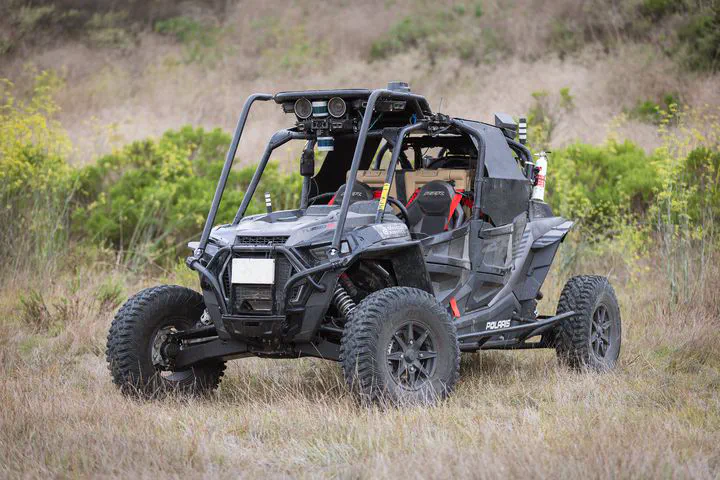DARPA RACER: Robotic Autonomy in Complex Environments with Resiliency
 JPL RACER vehicle. Image: NASA / JPL-Caltech.
JPL RACER vehicle. Image: NASA / JPL-Caltech.DARPA RACER Program - JPL RACER Team
DARPA’s RACER (Robotic Autonomy in Complex Environments with Resiliency) program aims to revolutionize autonomy for unmanned ground vehicles (UGVs) navigating unpredictable off-road terrain at speeds comparable to human drivers. It provides standardized all-terrain vehicle platforms—initially wheeled fleet Vehicles, later complemented by heavier tracked platforms—for research teams to develop perception, planning, and control software through simulation and iterative field experiments. The NASA Jet Propulsion Laboratory (JPL) RACER team has been applying its robotics expertise to the program, focusing on high-fidelity simulation, synthetic data generation, and advanced autonomy stacks. This has involved leveraging simulators such as Duality AI’s Falcon, to create virtual environments that train and validate autonomy algorithms under varied terrain and obstacle conditions, streamlining development ahead of real-world trials.
Roles
Jun 2022–Aug 2022: Robotics Technologist @ NASA JPL
JPL DARPA RACER Team | Simulation Team
- Expanded obstacle environment generation capabilities of custom ROS RViz-based simulator & integrated digital elevation maps (DEMs), enabling extensive Monte Carlo testing of autonomy stack prior to field tests.
Sep 2021–Jun 2022: Postdoctoral Scholar @ NASA JPL
JPL DARPA RACER Team | Perception Team
- Implemented semantic-to-geometric mapping capabilities to enable autonomous navigation & traversal for fast-paced vehicle in complex off-road environments.
Videos
DARPA RACER Experiment 3 Highlight Video
Video: DARPAtv YouTube Channel. Credit: DARPA.
Self-Supervised Traversability Prediction by Learning to Reconstruct Safe Terrain (IROS 2022)
Video: Robin Schmid’s YouTube Channel. Credit: Robin Schmid, Robotic Systems Lab, ETH Zurich; NASA/JPL-Caltech.